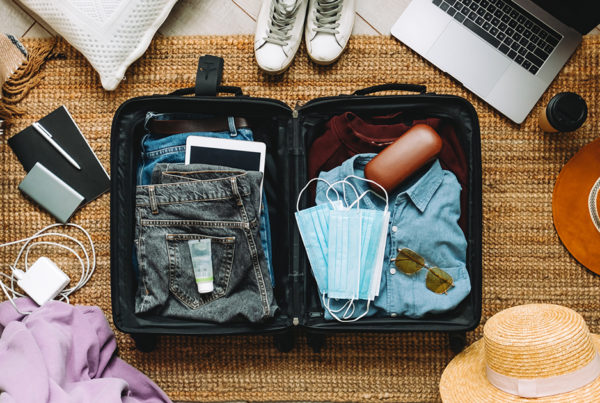It’s been seven months since the COVID-19 virus swept the globe and was officially declared a pandemic. After Safer-at-Home orders in March, lower coronavirus case numbers in the summer months and an increase in cases in the fall, it’s hard to look ahead to the holidays knowing so much will be different this year.
While traditions may be on pause, who says you can’t make new family traditions for the 2020 holidays? Here are a few tips to plan ahead and make the most of limited resources this year.
Whether you’re the “tree up before Thanksgiving” type or thankful for a little break from the hecticness, these tips will help you get your finances in order for the holidays.
- Use your travel budget for virtual fun. Since holiday travel during COVID-19 is being replaced with virtual gatherings, use some of the funds you had set aside for travel expenses to invest in ways to connect with your family online. Free options include creating a Facebook Messenger Room to video chat with up to 50 people at once (just send a link to everyone, and they can join even if they don’t have a Facebook profile), Skype or Google Duo. Paid options include Zoom (free for 40-minute calls), Google Meet (free for 1-hour calls) and Slack (for up to 15 people). Or, try out some fun game-based apps like Houseparty, Skribbl, The Game of Things or ScrabbleGo. If you haven’t done so yet, now may be a good time to use that travel budget to invest in a high-quality headset, camera and larger monitor (all the better to see your family with).
- Rethink gifts this year. While online shopping is a great option, all the shakeups of 2020 have us re-evaluating how we give gifts. Start by making a list (and checking it twice), and then take time to think through what you know about that family member or friend. Rather than jumping onto your favorite online shopping site, consider planning a video chat and follow it up with a homemade note or holiday card. It will save you a few dollars and will likely mean more than a gift. BUT, we also know that gifts are some people’s love languages, so go ahead and send homemade holiday cookies, put together an at-home spa package, or another personally curated gift basket.
- Cut the food bill. Smaller family gatherings mean lower grocery costs. Since you likely are not hosting or traveling to large gatherings, you can save money on food-related expenses. Instead of celebrating the holidays at three or four (or maybe more) family and friend gatherings, you have one meal with your household to plan. Go ahead and change it up this year by asking each family member what their favorite holiday dish is, and then only make the favorites (no need to make cranberries if no one is going to eat them!).
- Plan for quality time. We know what you’re thinking, “my family sees me 24/7, I don’t need to set aside extra time for quality time,” but hear us out. By intentionally setting aside 1:1 time to spend with each kiddo (and your significant other), you’ll be filling up those love tanks based on that particular family member’s passions (such as playing video games or board games, developing new masterpieces in the kitchen, painting, watching a movie, etc.). And that quality time will likely lead to some great conversations and strengthen your relationship and trust.
- Give that “too good to pass up deal” another review. The holiday season is filled with emails, text messages, social media ads and commercials galore touting great deals, with a catch—you have to act right NOW! While there are some instances where a short-term offer is worth it, often times a little research and shopping around will help you find a better deal. The extra time you take to research might even remind you that you really don’t need whatever item you received the great deal alert on.
- Organize your finances. If you haven’t done so yet, check your credit report through AnnualCreditReport.com (you can get free weekly reports through April 2021) to make sure no one else is taking out credit in your name. Then, gather and organize financial documents, such as credit card, phone, utility bills, account statements, insurance and mortgage payments, etc. Be sure to keep the paperwork (or login information for online access) in a secure location. Having all documents in a central location makes it easier to collect documentation for loan applications, as well as to review your finances for budgeting.
- Get a jump start on your New Year’s Resolutions. We’re all about making positive changes in your life ANY TIME of the year, so no need to wait until January 1. Even if you are not ready to tackle everything on your financial goals list, start chipping away now. Maybe start by outlining your expenses and income in one afternoon and then wait to make changes to your budget for a day or two so you can approach it with fresh eyes. You can do the same for other financial goals, such as reducing your debt.
Looking for other ways to give your budget a boost? Check out our tips for creating a budget or building your savings.






 Federally Insured by NCUA |
Federally Insured by NCUA |  Equal Housing Opportunity |
Equal Housing Opportunity |